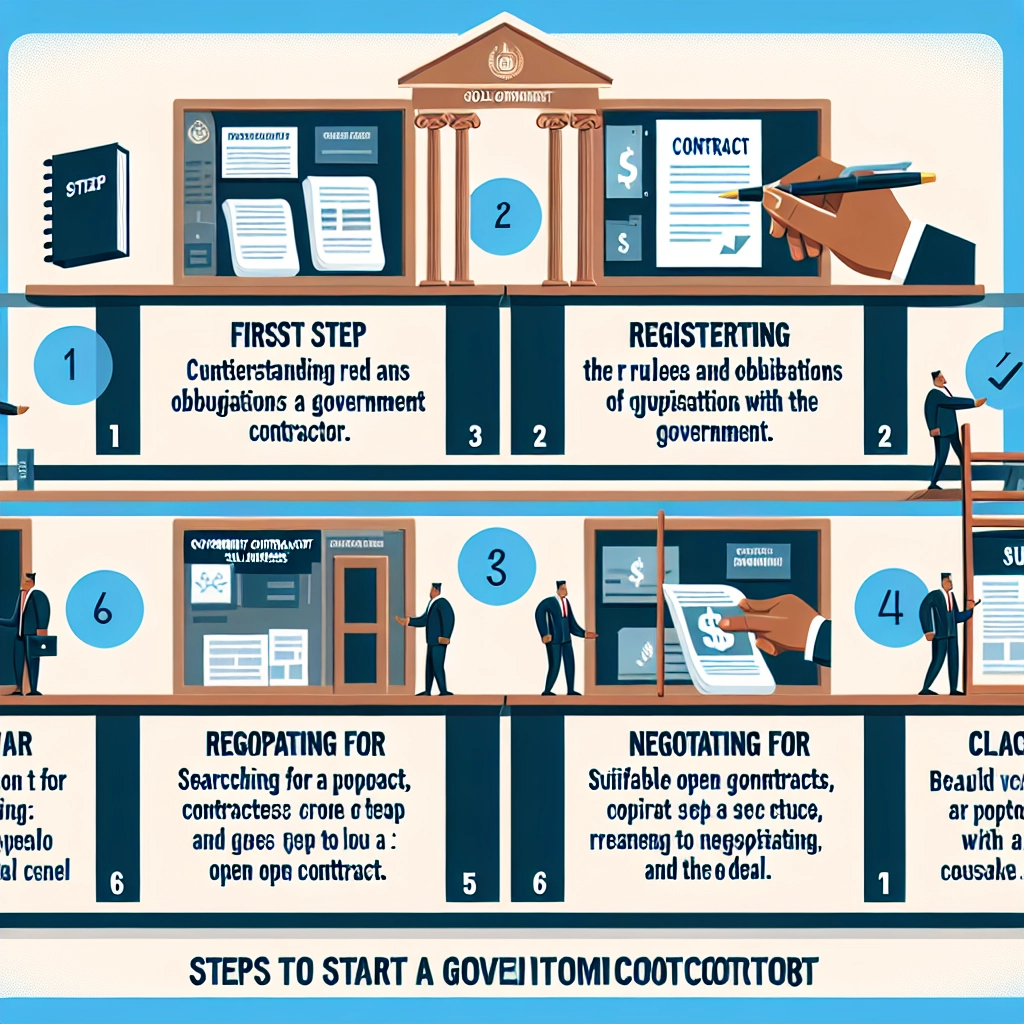
- Published on
- Authors

- Name
- ric de yuga 😄
How to Start a Government Contracting Small Business 📈🏛️
The federal government is a major source of contracts for small businesses. In fact, the Small Business Administration (SBA) estimates that small businesses receive about 23% of all federal contracts. If you're thinking about starting a small business, government contracting can be a great way to get started.
Here are the steps you need to take to start a government contracting small business:
Choose a business that qualifies for government contracts: Not all small businesses are eligible to bid on government contracts. To qualify, your business must meet certain size standards and be in good standing with the SBA. You can find more information about qualifying for government contracts on the SBA website.
Register with SAM: SAM, or System for Award Management, is a database that government agencies use to find contractors. To register with SAM, you'll need to provide information about your business, including your DUNS number, NAICS code, and contact information. You can register for SAM online at
Get certified: The SBA offers a number of certification programs for small businesses. These programs can help you qualify for government contracts and get noticed by government agencies. To learn more about SBA certification programs, visit the SBA website.
Find government contracts: There are a number of ways to find government contracts. You can search for contracts on the SBA website, subscribe to government contracting newsletters, or attend government contracting events.
Bid on contracts: Once you've found a contract that you're interested in, you'll need to submit a bid. The bid process will vary depending on the agency that's issuing the contract. However, all bids must be submitted in writing and must include certain information, such as your price, your qualifications, and your proposed delivery schedule.
Negotiate the contract: If your bid is successful, you'll need to negotiate the contract with the government agency. This is an important step, as it's your chance to make sure that the contract terms are fair and that you're able to deliver on your promises.
Complete the contract: Once the contract is negotiated, it's time to start working! Be sure to stay in communication with the government agency and keep them updated on your progress. Once the contract is complete, you'll be paid for your services.
Tips and Tricks for Government Contracting 🎯
- Build relationships with government agencies: The more relationships you have with government agencies, the more likely you are to get noticed when contracts are being awarded. Attend government contracting events, introduce yourself to government officials, and let them know about your business.
- Get certified: As mentioned above, the SBA offers a number of certification programs for small businesses. These programs can help you qualify for government contracts and get noticed by government agencies.
- Network with other government contractors: There are a number of organizations that can help you network with other government contractors. These organizations can provide you with valuable information and support as you start your government contracting business.
- Stay up-to-date on government regulations: The federal government has a complex set of regulations that govern government contracting. It's important to stay up-to-date on these regulations so that you can comply with them and avoid any problems.
